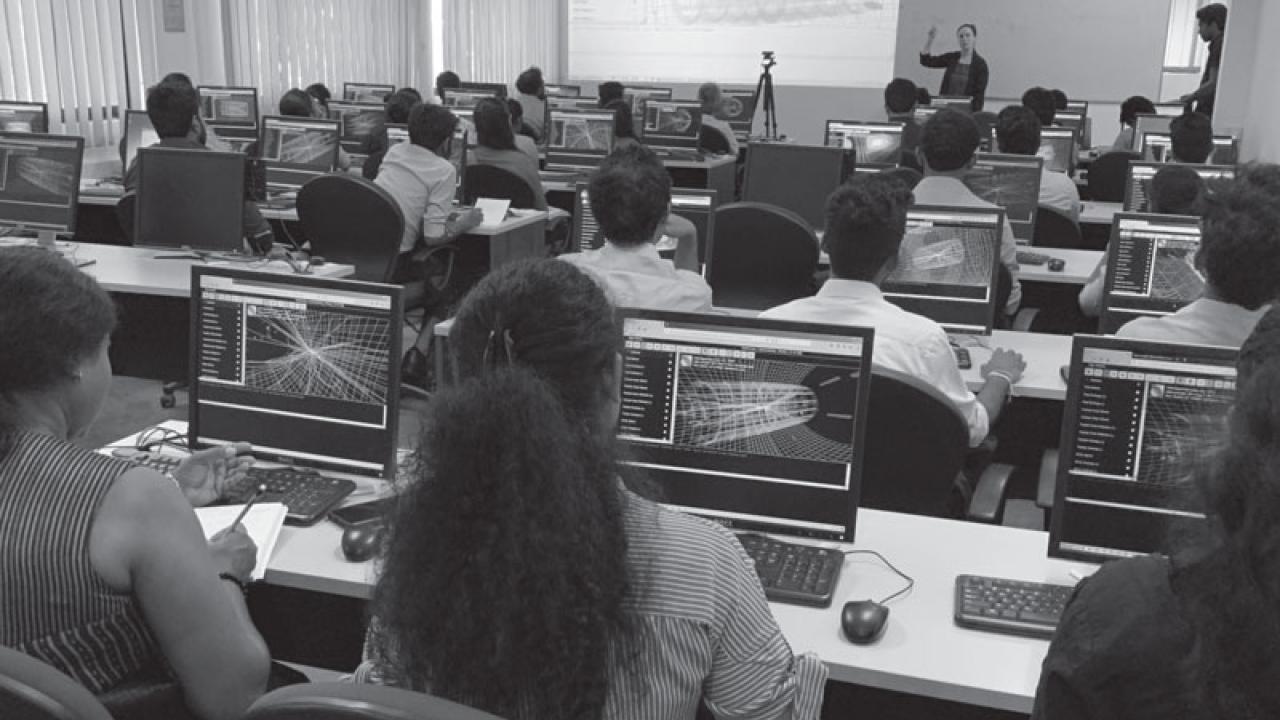
ICTP's Physics Without Frontiers (PWF) has extended the application deadline for new projects; proposals are now being accepted until 15 May 2020. Details on how to apply for a PWF project are here.
PWF projects aim to inspire students fascinated by physics, and any scientist or university can apply to host a customized PWF project to do just that. PWF organizes a wide variety of programmes, including roadshows, schools, and courses, and every programme seeks to bring inspiration, training, and networking opportunities to students, reaching over 5000 at over 50 universities in 17 countries since its founding.
PWF works with a wide network of volunteer scientists in teams that design programmes according to the gaps and needs of a host region, and the strengths of the scientists on the organizing team. More than 50 volunteer scientists have coordinated, taught, and facilitated programmes, and helped mentor many programme alumni, almost one hundred of whom have gone on to masters and doctoral studies.
Information and stories about PWF programmes can be found on the PWF website, as well as guidelines on how to apply. The application deadline is 15 May 2020, and questions can be directed to pwf[at]ictp.it. ICTP looks forward to a new cycle of inspiring PWF programmes across the globe.
Scientists at all phases of their careers can apply to develop a programme: both an ICTP Diploma Programme alumni and a university head have been the catalysts for recent PWF programmes. Each programme is coordinated by local leaders, and can focus on several different fields in physics. PWF started by focusing on particle physics, and has now grown to include programmes that centre on geophysics, condensed matter physics, cosmology, solar physics, and much more.
PWF programmes also support scientific communities in least developed countries and nations in conflict to help reduce brain drain and bolster the growth of research and training locally. With the vision of supporting thriving scientific communities, PWF provides faculty training, curriculum development, and mentoring for students, some of whom go on to the ICTP Postgraduate Diploma Programme and further study.













